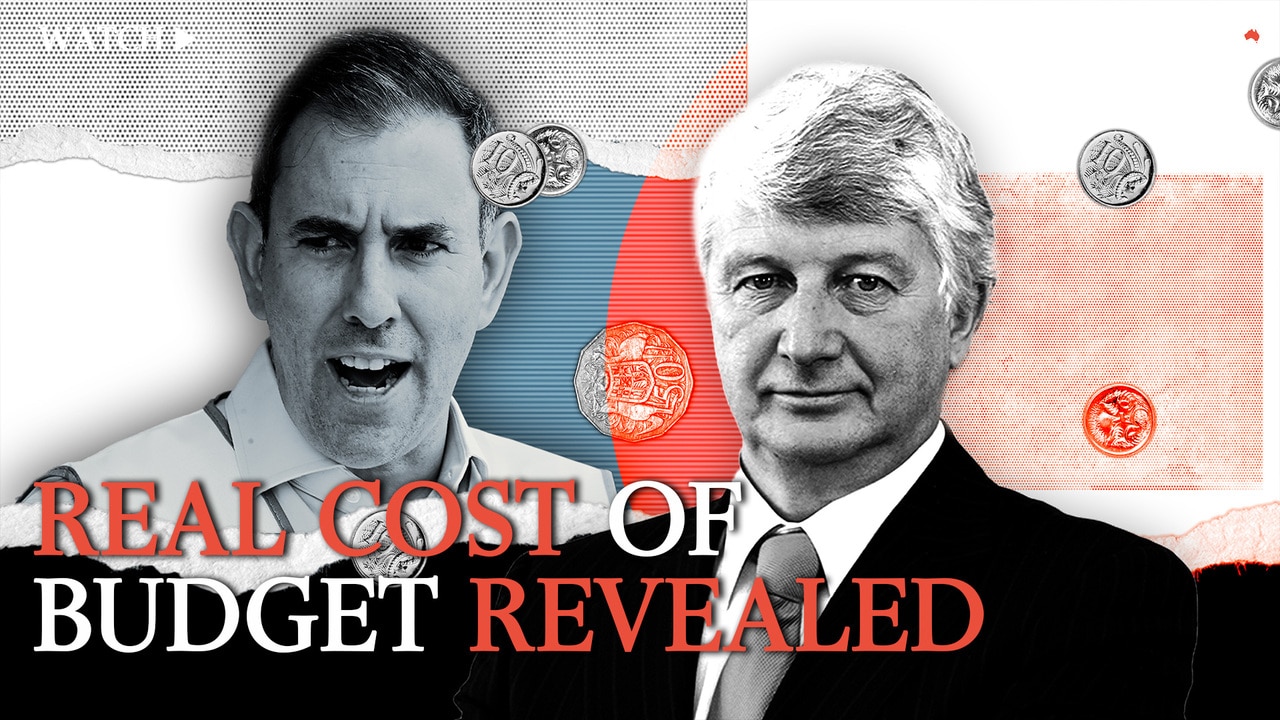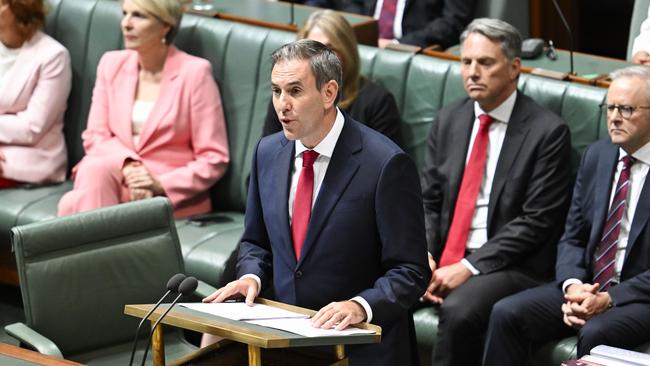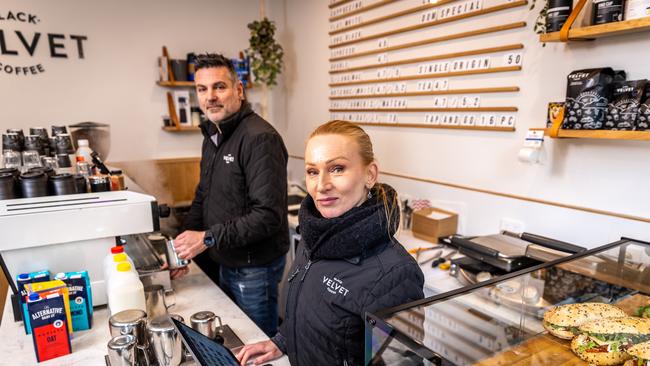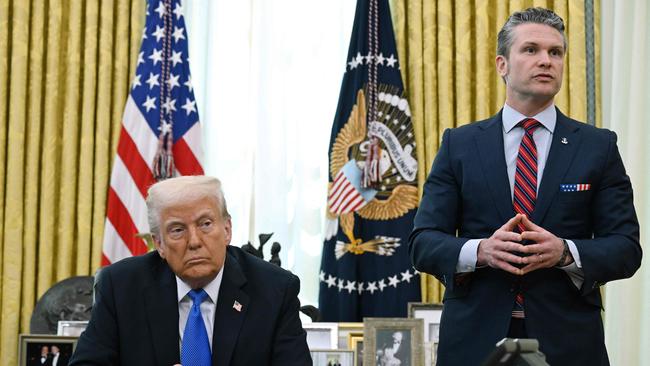Tepid outlook amid weak business investment as tariffs take their toll
Labor has flagged sluggish mining growth and steep falls in business investment with leading business groups saying that calls for action rather than an ‘almost random list of largely unrelated announcements’.

Australia faces an uncertain economic outlook with business investment falling due to sluggish mining growth and a near-term fillip in company tax receipts short-lived amid the heightened anxiety of a global trade war.
Budget estimates forecast annual business investment to grow by 1.5 per cent in both 2025-26 and 2026-27 from 1 per cent in the current financial year, marking a steep fall from the 6 per cent growth achieved in 2024-25.
Treasury warned international developments have cast a shadow over the Australian economic picture.
“The global economy is volatile and unpredictable,” Jim Chalmers said in his budget speech. “The 2020s have already seen a global pandemic, global inflation and the threat of a global trade war. The whole world has changed as a consequence. Tariffs and tensions abroad have been accompanied by storms at home.”

Treasury said non-mining spending was expected to be the main contributor to growth in business investment over the coming years, focused on renewable energy infrastructure, warehouses and data centres.
However, mining growth is expected to slow as new LNG projects reach completion while future mining investment is largely focused on maintaining current production levels, alongside “a modest number” of new small LNG and iron ore projects.
“Business investment has grown solidly for two years and, although growth is forecast to moderate, is expected to remain at recent decade highs,” the budget papers say.
Company tax receipts have been revised up by $4.5bn in 2025–26 since the December mid-year budget update, driven by a stronger outlook for mining sector profits powered by higher near-term commodity prices.
But receipts have been adjusted down by $800m over the five years from 2024-25 to 2028-29 due to a weaker outlook for non-mining sector profits.
The Business Council of Australia said on Tuesday night both Labor and the Coalition must address the economic fundamentals that drive productivity, such as regulation, planning and industrial relations, and also look at a broad-based investment allowance.
The Australian Chamber of Commerce and Industry said it was “deeply disappointed” that measures to help small business such as the instant asset write-off appeared to have been ignored.
“There appears to be no coherent strategy to take the pressure off small business, just an almost random list of largely unrelated announcements,” ACCI chief executive Andrew McKellar said.
“In particular it seems the government has not announced an extension of the instant asset write-off for small business.”

Deloitte Access Economics said the December quarter of 2024 showed some positive developments for company profits, with non-mining profits surprising on the upside with a 5.9 per cent increase over the three-month period. However, the consultancy said ongoing challenges for profitability would continue to weigh on revenue over the forward estimates.
“An economy growing slightly below Treasury forecasts but producing more jobs and higher wages suggests companies will be feeling a profit squeeze, even as the economy begins to pick up speed,” Deloitte Access Economics said in a pre-budget note.
The OECD’s latest report downgrades global growth expectations and increases projections for inflation in the wake of the “uncertain policy environment”.
“Escalating trade tensions have created significant uncertainty and volatility in global financial markets,” the budget papers say.
“These factors can compound the direct and indirect effects of tariffs on global growth by discouraging investment and dampening consumer confidence.”
Australia is considering a World Trade Organisation challenge against US President Donald Trump’s steel and aluminium tariffs, while Trade Minister Don Farrell told The Australian he was “deeply concerned” over the prospect of a new wave of food and pharmaceutical tariffs that may hit Australian exporters on April 2.
Treasury said the escalation of global trade tensions had contributed to significant market volatility and made the international outlook more uncertain.
“Tariffs and other trade barriers could weigh on global growth by disrupting trade and investment flows, driving up costs for businesses and consumers,” the budget papers say.
“The related policy uncertainty may exacerbate the risks to business investment, employment and household spending. A slowdown in global growth stemming from these pressures would also adversely affect demand for key Australian exports, domestic business confidence, and investment. These risks compound the uncertainty in the global economy from conflict in the Middle East and Europe and challenges in the Chinese economy.”
It comes as Australia is expected to reap nearly a $3.2bn tax bonanza from a crackdown on dodgy accountants and big businesses that fail to pay enough tax, after the government announced it would hand regulators almost $1bn to ramp up enforcement and extend anti-avoidance taskforces.
Australia has offered the White House billions of dollars worth of co-operation on critical minerals to shield Australia from the escalating trade war, proposing a guaranteed supply chain of processed minerals and investment funds for new projects.
Mr Trump this month revealed plans to build critical minerals processing facilities on Defence Department land, after telling Congress last week he would “take historic action to dramatically expand production of critical minerals and rare earths here in the USA”.

The US designates 50 minerals as critical to the US economy and national security, 30 of which Australia has significant quantities of.
Last week, a coalition of the nation’s peak business bodies claimed Australia’s economy was being crippled by major delays in project approvals, uncompetitive taxes and excessive union influence over business operations.
The business bodies have called for reform or elimination of state-based payroll tax systems, investment incentives for research and development in the budget, and a “single desk” project approval process by delegating federal environment law assessment to the states, to de-risk the economy from missing out on the next wave of investment.




To join the conversation, please log in. Don't have an account? Register
Join the conversation, you are commenting as Logout